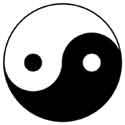Link
Before I get into the issues, I would like to put my remarks in context. First the scene: Imagine walking down a street in your town here in the US and you see a man and a woman engaged in a verbal fight that may turn into violence from the man hitting the woman. You decide to get involved and go over and try to stop the man from hitting her. Then as you get involved, the woman turns in support of the man she is having a fight with and against you for interfering. And you are shocked that you are being yelled at by the woman. In another country this would be understood as part of their culture and they would not get involved. I am not deciding here what is right and what is wrong or making a moral statement. I just want to set a scene.
This scene is all too common and I'm sure you have seen this before. Well this scene plays out on the world scene every day and between countries. The U.S. has played the "Rescuer" role now for most of its existence, as it sees many countries as "Victims" of their brutal dictators "Persecutors". When we get involved as Rescuers to save the Victims, the Victims often turn on us, the Rescuers, and often Persecute us. This role switch confuses us and we feel Victimized by them and we pull back on our effort. This switching of roles by all the parties involved is also familiar and they have given a name to this psychological drama. It is called the Karpman Triangle. To read more on this go to: http://www.mental-health-today.com/articles/drama.htm
I raise this comparison because we, as Americans, are always wanting to rescue countries in the world for the many excuses we use like the following: The dictator has brutally killed his own people, the oil is of strategic importance to us, they may be building weapons of mass destruction, etc. etc. These reasons give our government the hype for the justification to get the population to support the endeavor. But understand that we are clearly involved in a game of psychological drama with no good outcome for any of the involved parties. When we take these positions, we are coconspirators in the design and acting out of the scenes. The payoff for us is to always feel victimized. We did this in Vietnam and we are doing it again in Iraq. We are speaking of doing this with the rest of the Middle East (to bring them freedom). And we have indirectly created Osama Bin Laden, I'm sorry to say. These dramas play out over many years and are not seen by most of us. It allows us to see the rest of the world as less than us, since we are now the super power (above everyone else psychologically and physically in the world and we claim morally as well). Globalization in some ways contributes to this as well. I do not understand enough yet to comment on this but will study it further.
There is only one way to stop these psychological games from being played out. That lies in not playing the games in the first place. We must stop trying to rescue the whole world. We must allow others to develop at their pace not our pace. We must only offer help when it is asked for and not give it freely when the help has not been asked for.
We have a chance right now to do it right. The G8 are meeting and Tony Blair of Great Britain has asked the US to help wipe out hunger in Africa. The Africans have asked for help from the G8. Blair has asked the G8 to forgive all debt, which is being done. But the US is not contributing enough to this effort. We claim we have given enough and that some money previously given went into the hand and coffers of some brutal dictators. Even though there have been some new ways to guarantee the money goes to the people and there are incentives given to countries who accept the conditions, we still haven't stepped up to the plate. Would we rather spend the money we spend on wars or peace. That is the fundamental question of our time. The now defunct Roman Empire chose war. Let us not make the same choice.
The benefits of making a change is that we will start to engage the rest of the world as equals and learn something from others to help our development as a nation. We are only a few hundred years old and yet we think we know what is best for everyone. How about we figure out what is best for our own people first. I'll give some ideas. How about healthcare for everyone, a job for everyone, a clean environment for everyone by participating in an effort to stop Global warming that 140 nations have signed up to do but we won't.
The future is in your hands if you are willing to create a new one. Change happens one mindset at a time. Where's yours? My mindset is focused in creating ideas, suggested solutions and actions to solve problems and by helping others to understand they can and do make a difference by their choices daily. And also I hope I can be clear in what I write and speak and honest in what I do, daily.




